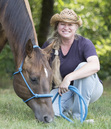Coach Courtenay and The Illusion of Control
Coach Courtenay Schurman is the special guest today on my blog. I have had the pleasure of working with Courtenay for many years in health and wellness and writing. I can personally recommend her, and am thrilled to have her join us today to chat about control and the role it plays in our lives.
Looking for a good book to read while you relinquish control? Check out some of my recent reviews. Click the link here .Take it away Coach Courtenay!The Illusion of Control: Focus on Skills and Habits InsteadSometimes life feels like it is spinning out of control. Pet care disappears before a trip. A health diagnosis or injury catches you off guard. Money issues leave you feeling inadequately prepared. Worries pile up. An event ends with a different outcome than you expected. It happens. What if you relinquish control, and instead, focus on the habits you need to acquire and skills you need to master to reach your goals?
Whittaker Wilderness and Doughty Falls A few weeks ago, my Labraheeler Ajax and I visited Whittaker Wilderness Peak with a friend, adding a loop including Shy Bear Pass to Doughty Falls. Our trip started great. We were first on the trail, with beautiful weather, upbeat moods, and enough time at the summit to grab a snack and sign the summit registry before continuing to explore more of Cougar Mountain east of Seattle in the Cascade Mountains.
A few weeks ago, my Labraheeler Ajax and I visited Whittaker Wilderness Peak with a friend, adding a loop including Shy Bear Pass to Doughty Falls. Our trip started great. We were first on the trail, with beautiful weather, upbeat moods, and enough time at the summit to grab a snack and sign the summit registry before continuing to explore more of Cougar Mountain east of Seattle in the Cascade Mountains.
But I overestimated how much mileage she could safely handle. Eventually, she succumbed to dehydration, pain, and exhaustion. A little less than a mile from the trailhead, I left her resting on a rock and dashed back to the car with Ajax to get her extra water. The word she used at the end of our hike was “miserable.”
I shared posts about this particular trail in How to Assess Your Progress (June 2023) and Expect the Unexpected (July 2023). In both, the outcome was less than optimal. Is it me or the trail? Am I trying too hard to control the outcome, choosing a route and distance that feels easy to me to gently push my partners – my dog, my daughter, my friend – into more mileage than they’re ready for?
The Essence of ControlWhen you think of control, what comes to mind? The vanilla definition of control is “the power to influence or direct people’s behavior or the course of events.” Many of my health and wellness coaching clients come to me feeling “out of control” around food, or not being able to exercise because of “situations beyond their control.” Others might blame their lives for not providing enough time to write, or to do whatever it is they desire.
What makes you lose control?
We have no control over how anyone else does, but we can help them develop the right skills such as pacing, fueling, hydration, gear selection, and more, to improve their outcomes. We also can steer our thoughts to a more appropriate place.
Now it’s your turn to explore your ideas and feelings about control. Please jot down some notes for the following questions:
The Illusion of ControlReflect on a moment when you felt completely in control. What elements were actually under your control, and what elements were not? I refer clients to a Precision Nutrition worksheet called the Spheres of Control. It might help you explore what areas of your life you feel you can control and which you cannot.
Reflecting on Surrendering ControlThink about a time when you had no choice but to surrender control. How did it make you feel, and what was the outcome? Did other people around you seem to have control, and if so, over what? What did you learn from the experience? If you had to do it again, what would you do differently?
Surrender Control: Physical Challenges In February of 2024, I shared a post on process and outcome goals. In physical challenges, an outcome goal, such as “summit Mt. Rainier,” is an event over which we have little control. Weather, route conditions, other climbing partners, etc. all contribute to whether or not we actually succeed.
In February of 2024, I shared a post on process and outcome goals. In physical challenges, an outcome goal, such as “summit Mt. Rainier,” is an event over which we have little control. Weather, route conditions, other climbing partners, etc. all contribute to whether or not we actually succeed.
A process goal, on the other hand, might include “carry a pack with increasing weight over increasing distance and elevation gain weekly.” This is one we have more control over. It is a skill and habit we can develop so that the desired outcome is more likely to happen. When you consider physical challenges like a hike, you can’t control the weather, but you can control the route you choose. You can control who you hike with, but not how they do.
I like to think I have voice control over Ajax, but do I really? What we have is a bonded trust that comes from years of hiking together. He loves to hike with me. He also loves being off leash. He knows from experience that he will lose that freedom if he goes too far away from me. We have developed habits that lead to our success.
The Body’s Limits and the Mind’s RoleNow it’s your turn. Recall a physically challenging experience. This might include facing a goal that pushed you beyond previous limits. Getting a physical diagnosis that shocked you into changing your actions. Recovering from an injury or illness that required a lot from you both physically and mentally.
Did you listen to your body’s signals, or did your mind push you to ignore them? What might that say about your relationship with control? Try the Sphere of Control exercise if it helps.
Preparation vs. AdaptationConsider how preparation for an event (like training for a mountain climb, hike, or triathlon) differs from adapting in the moment. Which do you lean towards, and how does that affect your sense of control? If you have a physical goal in mind, how much of your preparation relies on gaining skills? on creating consistent habits that will help you get ready? If you are trying to write a book, how much relies on externals (agents, editors, family needs) and how much on your habits (daily time, weekly word counts or chapters, a submission to an accountability partner)?
How much depends on luck and “winging it?” What would it feel like to surrender control over some aspect of preparation for a physical goal?
Surrender Control in RelationshipsThe last two aspects of control include supporting others and impact on well-being.
Supporting vs. ControllingOne of the trickiest parts about being a Thrive Clues wellness coach rather than a Body Results personal trainer is to surrender control to the client. For 25 years as a personal trainer, I got used to telling clients exactly what to do. A good coach, on the other hand, remains client-centered and asks what the client feels they need.
Personal trainers control the environment, the workout, and in that regard, the outcome. Coaches, on the other hand, are collaborators, equal partners, and guides. As I grapple with my evolution into a 100% coach, the line blurs when I need to hold firm.
Your turn. Reflect on a time when you had to support someone else through a challenge. How did you balance offering support without taking control away from them? What might you do differently to surrender control that isn’t yours in the first place?
The Role of Control in CreativityCreating anything is by definition an uncontrolled experiment. We never know what our brains are going to churn out. If you find yourself facing a hunk of clay with no idea what to create, or a blank page with zero sense of the words or paint strokes to put down, celebrate. The sky is the limit. This is an opportunity to tap into your deepest genius and get in touch with what you most want to explore.
If your muse never comes around, shift to cultivating the habits, instead. Write “I don’t know what to write” until something emerges. Set yourself some limits, such as speed timed writing for five minutes. Play with a new media. Change your pen to markers. Cut a quote out of a magazine. Let go of control and just be. Go for walks or do some gentle deep breathing to still the part of your mind that must control everything. Then come to the creative materials fresh.
Take-Aways about ControlI’m rewriting many of my control stories. My hiking partner hiked solo after our “miserable” hike, reclaiming her power and succeeding on a trail that challenged her several months ago. By being willing to teach her, I’m also learning from her.
By focusing on controlling the actions we take (our process goals), we can influence our outcomes. We can’t control others’ performance, but we can support them, so they have a more comfortable experience. Likewise, we can’t control how our bodies do on a given day, but we can acquire skills around proper hydration, physical training, gear selection, fueling, recovery, and pacing to enhance the outcome.
Feel free to explore your reactions to these prompts in your journaling or reflection practice. And if you find these prompts helpful and you’d like to explore any in depth, I’m offering a free 15-minute consultation to discuss how we might work together. Contact me at Court@thriveclues.com for more information or visit my websites at Body Results and Thrive Clues.
Thrive CluesOur clients want help achieving their health and wellness goals as quickly, safely, and effectively as possible. At Thrive Clues, you and I will collaborate to discover clues that will help you align your goals, values, and identity with next-action steps. Together, we will hunt down past victories and turn current obstacles into opportunities in order to help you discover your unique Owner’s Manual. I’ll support you every step of the way. Learn what steps you can take TODAY to become your inspired, fulfilled, thriving self.
To learn more, click the link here.
Coach Courtenay SchurmanCoach Court, here! I am a Strength and Conditioning Specialist (CSCS) certified through the NSCA (National Strength and Conditioning Association). For over 25 years I have helped clients achieve success in the mountains as an alpine conditioning coach.
To learn more, click the link here.

The post Coach Courtenay and The Illusion of Control appeared first on The Mystery of Writing.



